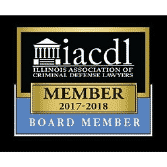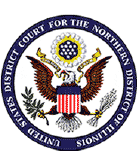Chicago Appellate Attorney
Post-Conviction Relief Attorneys in Chicago
If you have been convicted of a crime in Illinois, you may face a variety of serious consequences, and you may be wondering if there is any hope of overturning your conviction or reducing your sentence. Fortunately, there are options that may be available to you, including challenging your conviction or sentence, addressing violations of your rights, or demonstrating your innocence based on new facts or evidence that have been uncovered. A criminal defense attorney can assess your case and determine whether you may be able to pursue an appeal or seek other forms of post-conviction relief.
At the Law Offices of James F. DiQuattro, our experienced lawyer can review all aspects of your case and help you understand the steps you may be able to take to overturn your conviction, reduce your sentence, or receive other forms of relief. We will review the charges and evidence against you, the procedures followed during your trial, the factors considered during sentencing, and other details of your case to ensure that these issues will be addressed correctly. We will fight for your rights throughout every step of the process while zealously advocating for a positive outcome to your case.
Criminal Appeals in Illinois
Following a verdict in a criminal trial, it may be possible to file an appeal. It is important to understand that appeals must usually be based on errors that took place during a trial. These errors may include allowing evidence to be presented that should have been inadmissible, incorrect instructions given by the judge to the jury, or an excessive sentence that was not appropriate based on the specific charges a person was convicted of.
A defendant will need to file a notice of appeal within 30 days after the final order was entered in their criminal case. They will then need to file a variety of other documents with the appellate court, including a docketing statement that describes the facts of the matter and the record of appeal that includes all court documents related to the criminal case. The appellant will then file a brief explaining their arguments. The prosecutor will also file a brief, and the appellant may file an answering brief addressing the issues raised in the prosecutor's brief. The court will then consider the issues raised in the briefs and the record of the criminal case and trial and issue a decision.
During an appeal, no new evidence may be presented, and no witnesses will testify. In most criminal appeals, oral arguments will not be made, and the court's decisions will be based on the documents filed by the prosecution and the defense. The court may decide to affirm the original decision, reverse some or all of the decisions made in the case, or order a new trial to be held. If the appellant believes that the court's decision was incorrect, they may pursue an additional appeal through the Illinois Supreme Court.
Post-Conviction Relief
In cases where an appeal cannot be filed or where other issues may need to be raised, a defendant may pursue post-conviction relief. In general, post-conviction relief will raise issues that could not be addressed during an appeal, such as new evidence that may indicate a person's innocence. A defendant may also pursue relief because of "ineffective assistance of counsel," meaning that the attorney that represented them during their trial did not take the correct steps to raise objections or failed to present arguments that could have led to an acquittal. Other violations of a defendant's rights may allow for the reconsideration of their case, adjustments to sentencing, or a new trial.
If a defendant filed an appeal, they must file a petition for post-conviction relief within six months after the appellate court's decision or after the date their appeal request was denied. If a defendant did not file an appeal, they will generally have three years after the date of their conviction to request post-conviction relief. If the applicable deadline has passed, it may still be possible to file a petition for post-conviction relief, although a person will need to demonstrate that they had a valid reason for the delay, such as the discovery of new evidence after the deadline.
Contact Our Chicago Post-Conviction Lawyer
If you have been convicted of a criminal offense, this does not necessarily mean that you have no option but to serve your sentence. At the Law Offices of James F. DiQuattro, we can help you determine whether you can take additional steps to address violations of your rights, errors during your trial, or other issues that resulted in an incorrect verdict or an unfair sentence. We will advise you on the best options available to you, and we will work with you to meet all legal requirements as you pursue an appeal or other forms of relief. To schedule a free consultation and learn how we can assist with these matters, contact our office at 312-627-9482.
















